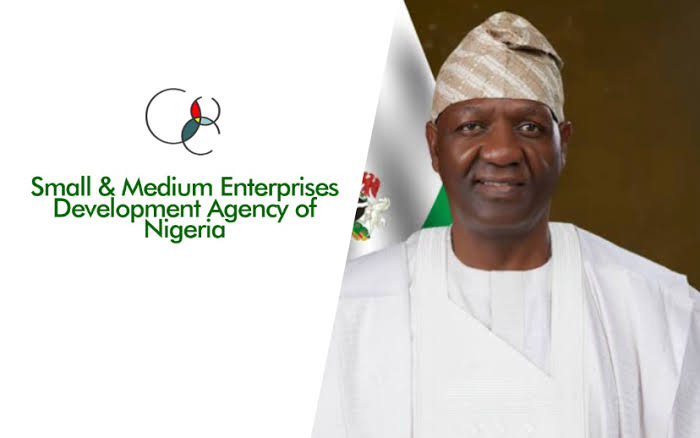The Small and Medium Enterprises Development Agency of Nigeria, SMEDAN with the support of the GIZ-SEDIN programme (a Deutsch Gesellschaft für Internationale Zusammenarbeit, pro-poor growth and promotion of employment in Nigeria) in collaboration with the Plateau State Microfinance Development Agency, PLASMIDA have organized a one-day stakeholders’ dialogue on the implementation of the National MSME Policy in Plateau State.
The National MSME Policy was to enlighten business owners of Medium, Small and Medium Enterprise, MSME in Plateau State to enable them understand the priority of the policy, see how they can key into and own the policy for inclusive development of the MSME sub-sector.
Speaking at the event held on Thursday in Jos, the Director General of SMEDAN, Olawale Fasanya in his keynote address, said the engagement forum is an avenue to “harvest inputs of stakeholders which would assist the Agency to decide the exact intervention that is needed to enable MSME to continue to improve and add value to the nation’s economy.”
Fasanya noted the need to bridge the information gap between the government agencies in charge of MSMEs development, adding that there are enough funds to support MSMEs but operators do not have the requisite knowledge to access the funds due to lack of proper information hence, plans are underway to establish business information centres in all the local government areas for the benefit of grassroots dwellers who own small businesses.
Giving an update on the said policy as well as the National Survey on MSMEs, Onesi-Lawani Daberuje of SMEDAN noted that the forum sought to “create awareness/ownership If the policy implementation at the State level, provide a platform for regular interface towards the implementation of the policy recommendations and allows for input-harvest by SMEDAN in driving sustainability and strengthening the MSME subsector.”
He emphasized that the policy focus areas include, “raising awareness, five extension/support services, marketing, infrastructure, and cost of doing business” among other things.
Furthermore, Markus Wauschkuhn of the GIZ-SEDIN emphasized that the importance of MSMEs in employment and job creation cannot be understated because the sector supports Nigeria’s economy and GDP expansion.
His words, “MSMEs generate income and further employment, we work closely with private and public institutions to improve the conditions these enterprises have to work, the business environment, the policies, the local economic development. The SEDIN programme is supporting the SMEDAN to organize the stakeholder engagement in Plateau State to strengthen the collaboration among the different actors and to strengthen the MSMEs ecosystem.
“We offer support for maximum impacts of MSMEs because of the roles of MSMEs in economic development and creation of jobs, especially in Nigeria where the unemployment rate is high. Available statistics show that MSMEs contribute up to 48% of the national GDP but despite this significant contribution, challenges hinder the growth and development of the sector therefore, we give this support to address the issues which hinder the growth of MSMEs in Nigeria.”
Bomkam Wuyep, the DG of PLASMIDA who represented the Secretary to the State Government, Professor Danladi Atu promised an improved ecosystem for small businesses to thrive while Akinropo Omoware of GIZ assured of continued collaboration with all stakeholders to strengthen MSMEs.
Discussing the challenges faced by MSMEs in the State, as well as the possible solutions to the issues raised, participants complained about the cumbersome conditions for accessing funds, the unlevel playing field for small businesses to thrive, and the lack of data to help in monitoring and evaluation, lack of access to the Bank of Industry, lack of access to improved seedlings, lack of access to markets for sales of products as well as the use of intervention for consumption rather than production and called for more assistance.









